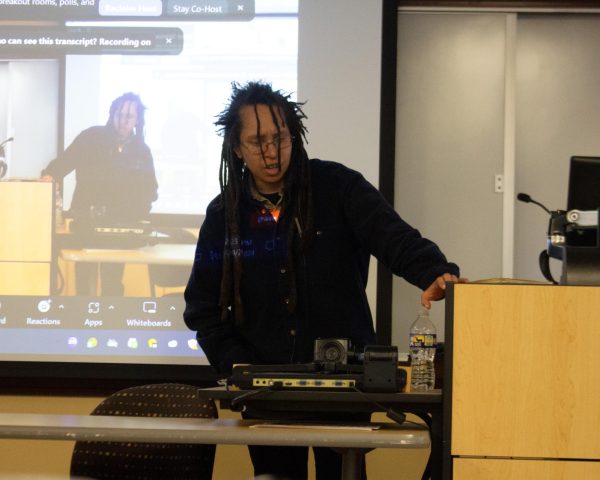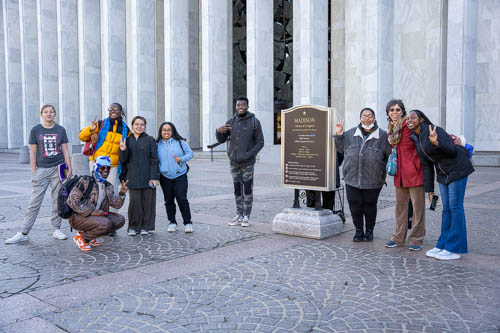Ibram X. Kendi a Talk about Racial Ideas
Understanding the origins of racist views
Photo credit, Anas Jerome
Ibram X. Kendi at @ Montgomery College.
Ibram X. Kendi, award-winning historian, New York Times Best-Selling Author and professor of history and international relations at American University came to Montgomery College at Takoma Park to discuss his latest book, Stamped from the Beginning. Subtitled “The definitive history of racist ideas,” the book debunks the myth that we are living in a post-racial society. Many saw the Presidency of Barack Obama, the first African American President, as a sign of the end of racism. With this book, Kendi dismantles the popular belief that racist ideas come from ignorance and hatred; on the contrary, they were created by intellectuals who used racist ideas to justify and rationalize racial inequalities in our society. His argument centers around five intellectuals throughout history: 17th Century Puritan Minister Cotton Mather, founding father Thomas Jefferson, abolitionist William Lloyd Garrison, W.E.B Du Bois, and Angela Davis.
Kendi defines racist ideas as, “…any concept that regards one racial group as inferior or superior to another racial group in any way.” The idea of racial superiority has manifested in a myriad of systematic tools that have a choke hold on African American Advancement. Slavery was justified by leaders and intellectuals who viewed Africans as cursed people who are natural slaves, needing to be saved by the “civilized” whites. Still, to this day, we witness the same rhetoric used by our politicians: “black on black crime,” “war on drugs,” “tough on crime,” “law and order,” etc. These statements justify the discriminatory acts that the majority group continues to commit against the African American community. When addressing how to dismantle these racist ideas, the responsibility is wrongly placed on African Americans. Kendi calls believers in the responsibility of African Americans for their own oppression “assimilationists.”
Kendi spares nobody in his book, not even himself. Before he began his research, he subconsciously harbored prejudice. “Fooled by racist ideas, I did not fully realize that the only thing wrong with Black people is that we think something is wrong with Black people.” Even though Black History Month is long over, the conversation about race is never-ending. I highly encourage picking up a copy of Kendi’s book and holding discussions with your peers. Evaluate your government. Evaluate yourselves. We all have potential to harbor racist ideas, and we all have potential to overturn them.
She's a fine art major who enjoys hanging out in museums. Likes talking about politics -she's not afraid to speak her mind- and secretly enjoys Reality TV.
You know when she's in the building because you can hear her laugh.














